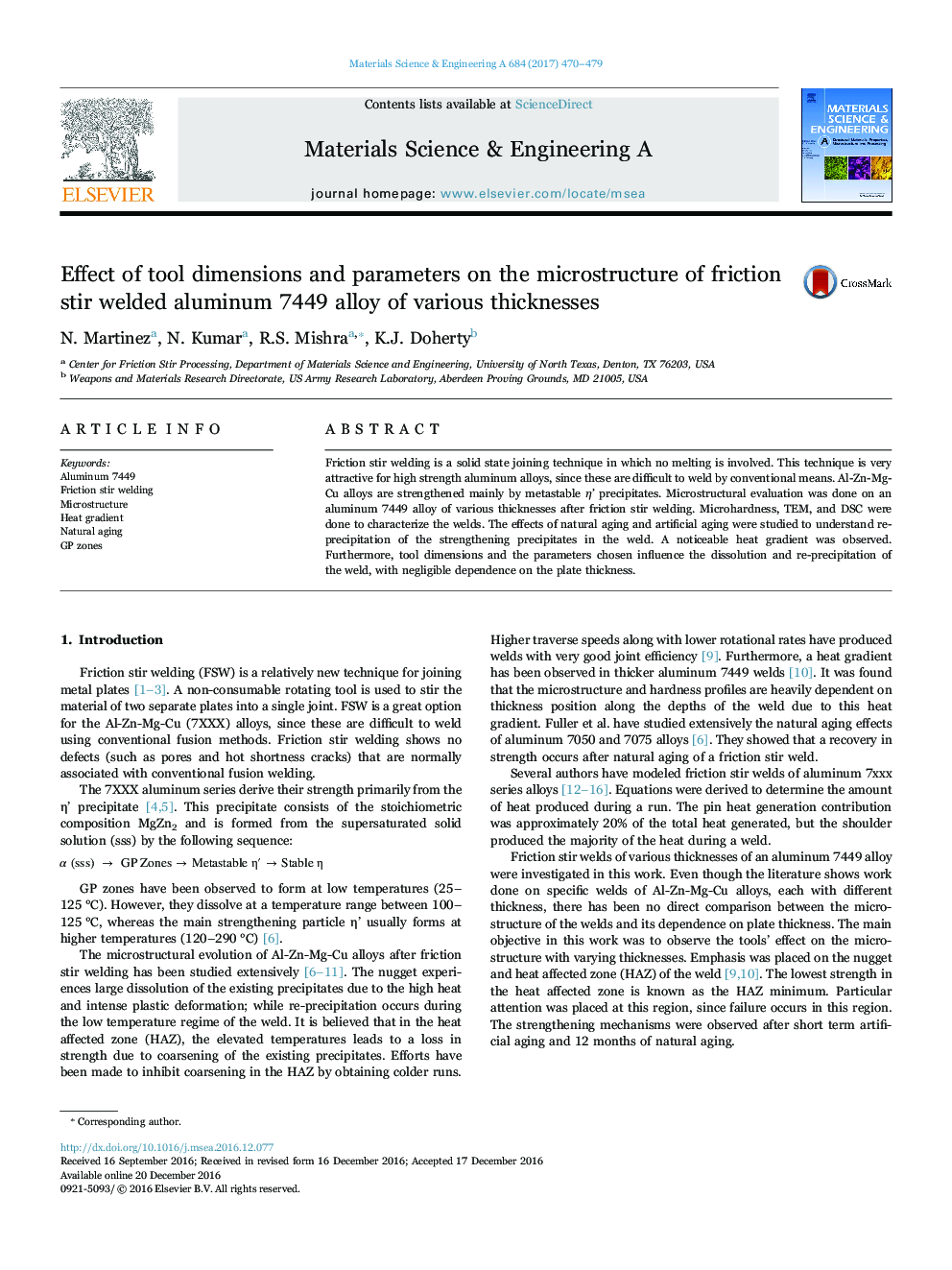| Article ID | Journal | Published Year | Pages | File Type |
|---|---|---|---|---|
| 5456332 | Materials Science and Engineering: A | 2017 | 10 Pages |
Abstract
Friction stir welding is a solid state joining technique in which no melting is involved. This technique is very attractive for high strength aluminum alloys, since these are difficult to weld by conventional means. Al-Zn-Mg-Cu alloys are strengthened mainly by metastable η' precipitates. Microstructural evaluation was done on an aluminum 7449 alloy of various thicknesses after friction stir welding. Microhardness, TEM, and DSC were done to characterize the welds. The effects of natural aging and artificial aging were studied to understand re-precipitation of the strengthening precipitates in the weld. A noticeable heat gradient was observed. Furthermore, tool dimensions and the parameters chosen influence the dissolution and re-precipitation of the weld, with negligible dependence on the plate thickness.
Related Topics
Physical Sciences and Engineering
Materials Science
Materials Science (General)
Authors
N. Martinez, N. Kumar, R.S. Mishra, K.J. Doherty,
